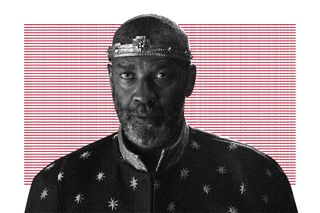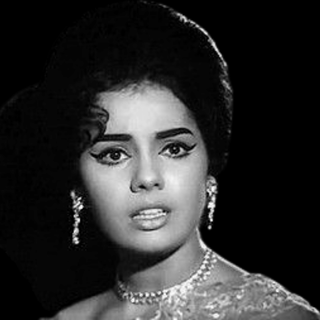
In ‘The Tragedy of Macbeth,’ Denzel Washington Carries a Familiar Legacy in a New Direction
That a black actor finally plays the most enduring of Shakespeare’s characters without stereotyping or parody is a significant moment.

In the centuries of its production on stage, Macbeth has had a few actors of color play the titular role. Film adaptations of most Shakespearean classics, however, have remained “loyal” to the original source material and context— in that all actors in leading roles have been, almost always, white. With the exception, of course, of Othello, the only title character with villainous, racist undertones reserved for actors of color. For audiences who don’t have access to theatre — and these number in the many — film remains the more accessible, global form of art that allows Shakespearean classics to travel across borders and cultures.
Arguably, the film adaptations comprise the most visible body of Shakespeare’s performed work. And so, even as theatre movements are pushing boundaries in terms of who can and cannot play legendary characters, how can the world know, watch, and hear Shakespeare in ways that challenge what self-proclaimed purveyors of great film have told us so far?
Enter The Tragedy of Macbeth (2022). Directed by Joel Coen, the film stars Denzel Washington as the eponymous character, and is a stunning adaptation of the haunting classic about ambition, greed, and the descent into madness. For one, the film is shot in black and white, with a chillingly austere backdrop where shadows, silhouettes, and profiles move, shimmer, and conspire in tandem with Macbeth’s own thoughts. It is not just representation for representation’s sake: Denzel Washington as Macbeth means much more to art because he carries a weighty legacy forward in an entirely new direction; one that isn’t constrained by arbitrary and unspoken rules of who does and doesn’t get to embody a universal human story.
Macbeth is an enduring tale that captivates because of how everything in it is eternal — the infallibility and madness of human beings, the corruption and rot that “vaulting ambition” seeds within, the crescendo of the dramatic rise and the crashing fall that the quest for greatness can bring. Washington embodies everything that makes Macbeth the most renowned Shakespearean drama there ever was. In doing so,shows that what the story is about, goes beyond constructed ideals. Indeed, Macbeth is a slow poisoning of the psyche and necessarily voyages inwards — into two minds at war with themselves due to the horrific deeds they let escape from their confines.
Related on The Swaddle:
‘Succession’ Plays Out Like a Shakespearean Tragedy — One Where People Are Doomed to Live
In borrowing from the surrealism of German Expressionist cinema, Coen and production designer Stefan Dechant play with symmetry and space in ways that make this adaptation of Macbeth a psychological horror. The result is an uncanny, nightmarish descent into Macbeth’s madness in real-time. In essaying the role of Macbeth against this backdrop, Washington draws audiences into the state of Macbeth’s mind in visceral detail. We see what he sees, and feel what he feels. Even vast open vistas of space can feel claustrophobic in the death-grip of Macbeth’s triad of ambition, guilt and madness; and the play of light and shadows allow his most covert desires to either hide or stand nakedly exposed.
Macbeth cannot be definitively “about” anything in particular. But if there is one thing about it that endures through generations, it is its universal truth about how untrammeled ambition can, and often is, what ultimately works as the fatal flaw for humans seeking to be more, greater. In a 2008 essay, critic Abraham Stoll notes: “Macbeth dramatizes the functioning of conscience in the sinful mind… Far more than ours, Shakespeare’s period put considerable energy into anatomizing and understanding the conscience.”
Who Macbeth, the actor, is, thus matters very little; it is Macbeth, the mind, whose inner turmoil makes up the essence of the drama. Stripped of all grandeur and pomp, The Tragedy of Macbeth is a journey into the inner world of Macbeth, where the external setting is arguably his own mind. “Immediately after the murder, Macbeth experiences conscience as a chamber of sights and sounds,” Stoll writes. This makes The Tragedy of Macbeth an adaptation that isn’t simply diverse: it’s authentic because it goes past the limitations of the outside to journey within.
“[T]heir [the witches’] teasing wordplay infiltrates and undermines Macbeth from within, revealing in him a lack which hollows his being into desire,” literary critic Terry Eagleton notes, in an essay called ‘The witches are the heroines of the piece…’ and indeed they are. We viscerally see this hollowness through the way Washington occupies the space around him and wears his crown with unease, and we also see it for what it is: emptiness. That desire and ambition, ultimately, amount to nothing.
But the witches also famously invert meaning and call into question the values of regular society from the dregs, the outer-lands of civility, and infect Macbeth’s mind with the knowledge that in the end, his pursuit for power is meaningless, temporary, futile. And when we watch Washington as Macbeth, we are let in on a secret: that the social meanings we impose upon the skin, gender, and any socially constructed category, are equally meaningless. The fourth wall is often broken by piercing stares, seeming to communicate something to us: that it might be that we, the viewers, who make the “fair,” “foul,” through our notions of what, and who, constitute “proper” art or authenticity.
In getting to experience Macbeth in this way, therefore, we might just be seeing Washington usher in a Renaissance-era for Shakespearean classics that deconstructs more than what we previously assumed. What are stories, who tells them, and who are they for? Shakespeare had an answer for us way back, which takes on new meaning now. Any portrayal of Shakespeare claiming to be the most authentic is “… a tale / Told by an idiot, full of sound and fury / Signifying nothing.”
Rohitha Naraharisetty is a Senior Associate Editor at The Swaddle. She writes about the intersection of gender, caste, social movements, and pop culture. She can be found on Instagram at @rohitha_97 or on Twitter at @romimacaronii.
Related


Woe Is Me! “I Don’t Like Sexting, but It Feels Like My Guy Expects It. How Do I Say No?”
